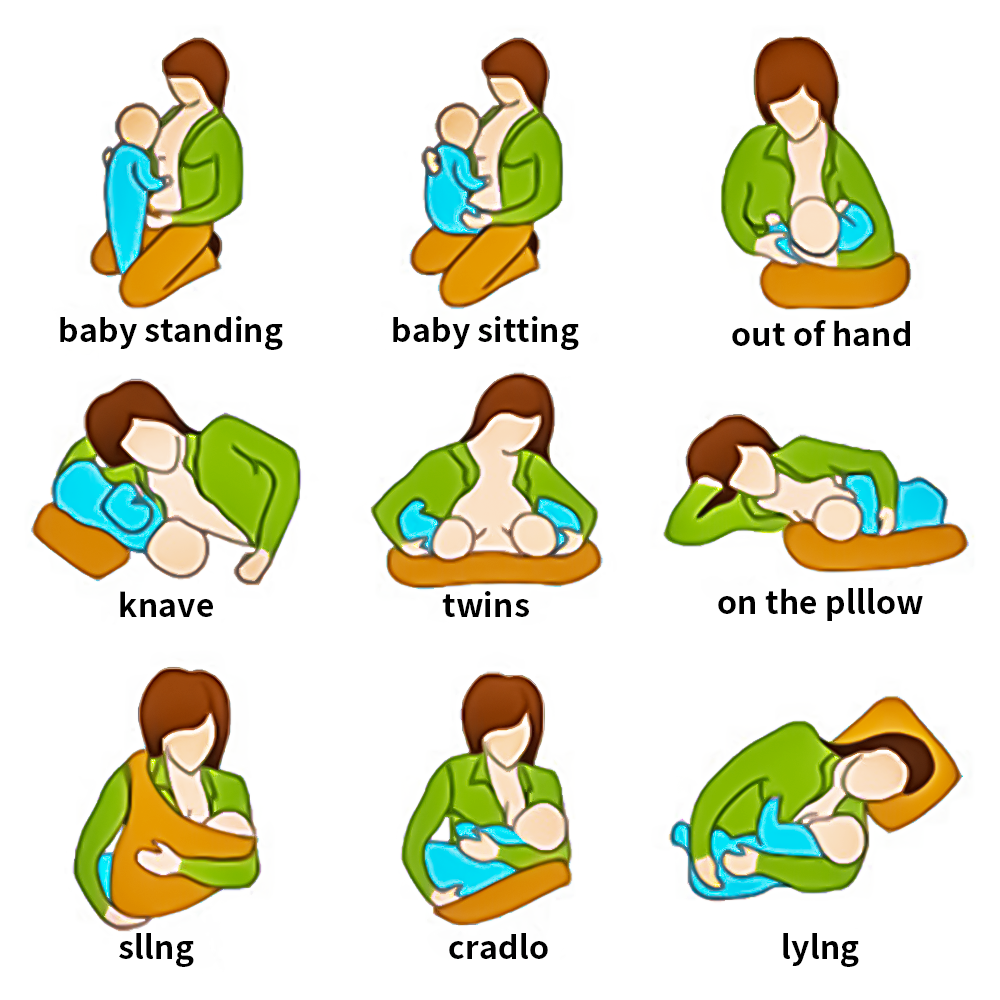Advantages of Breastfeeding: Laying a Solid Foundation for Maternal and Child Health
Breastfeeding is one of nature's most precious gifts to mothers and babies. Both the World Health Organization (WHO) and the United Nations Children's Fund (UNICEF) recommend that babies should be exclusively breastfed for the first six months of life, and then continue to be breastfed until the age of two years or beyond while complementary foods are introduced. Breastfeeding not only provides the ideal nutrition that babies need, but also has numerous health, psychological and social advantages. The following are the main advantages of breastfeeding:
Health benefits for infants
1. Provides perfect nutrition
Breastmilk contains all the nutrients needed for the growth of infants, including proteins, fats, carbohydrates, vitamins and minerals.
The nutrients in breastmilk are dynamically adjusted to meet the needs of infants at different stages of growth.
2. Enhance immunity
Breastmilk is rich in immunoglobulins (e.g. IgA), lactoferrin, leukocytes, etc., which help infants fight against viruses, bacteria and infections.
Reduce the risk of respiratory infections, diarrhea, otitis media and other diseases in infants.
3. Promote brain development
Long-chain fatty acids such as DHA (docosahexaenoic acid) and ARA (arachidonic acid) in breastmilk are essential for the development of an infant's brain and vision.
Studies have shown that breastfed babies perform better in cognitive and IQ tests.
4. Reduced Risk of Allergies and Chronic Diseases
Breastfeeding reduces an infant's risk of allergic diseases such as asthma, eczema, and food allergies.
In the long run, breastfeeding also reduces the incidence of obesity, diabetes and cardiovascular disease.
5. Reduce the risk of Sudden Infant Death Syndrome (SIDS)
Breastfed babies are less likely to develop SIDS (Sudden Infant Death Syndrome).
Health Benefits for Mothers
1. Promotes Postpartum Recovery
Breastfeeding stimulates uterine contractions, reduces postpartum bleeding, and helps the uterus recover more quickly.
It helps mothers to regain their pre-pregnancy weight more quickly because breastfeeding can burn about 500 extra calories a day.
2. Reduces the risk of breast and ovarian cancer
Long-term breastfeeding reduces a mother's risk of breast, ovarian and endometrial cancer.
3. Natural contraception (under certain conditions)
In the case of exclusive breastfeeding with no return of menstruation (“lactational amenorrhea method”), breastfeeding may provide some contraceptive effect, but it is not 100% reliable.
4. Improvement of mental health
Breastfeeding promotes the secretion of oxytocin in the mother's body, which helps to relieve stress, enhance the emotional connection between mother and baby, and reduce the risk of postpartum depression.
Economic and social benefits
1. Saving money
Breastmilk is free, which can save a lot of money compared with formula feeding.
Reduced medical expenses, as breastfed babies have a lower rate of illness.
2. Environmentally sustainable
Breastfeeding does not require bottles, formula packages, etc., which reduces waste of resources and environmental pollution.
3. Promote parent-child relationship
Skin-to-skin contact during breastfeeding enhances the emotional connection between mother and baby and promotes the establishment of a sense of security in infants.
Breastfeeding in special circumstances
Preterm babies: Breastmilk can provide special protection and reduce the risk of necrotizing enterocolitis (NEC).
Sick mothers: In most cases, such as colds and flu, breastfeeding can be continued (viruses are usually not transmitted through breast milk).
HIV-positive mothers: Decisions about breastfeeding need to be made based on medical advice, and in some cases, formula may be used instead.
How to improve the success rate of breastfeeding
-
Breastfeeding as early as possible: let the baby suckle at the breast within one hour after delivery to promote milk secretion.
-
Breastfeeding on demand: Do not strictly limit the time, feed the baby when he/she is hungry.
-
Breastfeed correctly : Make sure your baby latches on to the nipple and areola correctly to avoid cracked nipples.
-
Maintain confidence: Many mothers experience difficulties at the beginning (e.g. insufficient milk), but persistent breastfeeding usually improves the situation.
-
Seek support: Help from family members, doctors or lactation consultants is crucial.
Conclusion
Breastfeeding is the gold standard of health for mothers and babies, and its benefits go far beyond nutrition itself. Although modern society offers alternatives such as formula milk, there is no substitute for the unique advantages of breast milk. The community should work together to support breastfeeding and create a more friendly feeding environment for mothers and babies.
Breastfeeding is not only feeding, but also the transmission of love and health.
-
Breastfeeding positions

www.jxphome.com
Jiangxi Partner Home Co., LTD